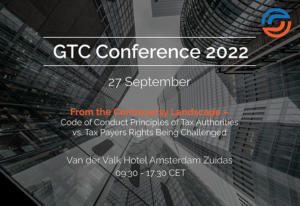Groundbreaking decision for mining companies
PLUS an important determination: Sars has argued that the high court did not have jurisdiction in the matter, and that it should have been heard by the tax court. The court disagreed and found that it has jurisdiction to hear and determine tax cases turning on legal issues.
Firms entitled to deduct the cost of transport, insurance and handling to determine ‘gross sales’ even if the costs were not invoiced separately.
Amanda Visser / 17 October 2017 00:06
Court ruling confirms Sars’ interpretation of a section in the Mineral and Petroleum Resources Royalty Act was wrong.
A groundbreaking order in the Pretoria High Court has brought much needed clarity on the way mining companies must determine gross sales of minerals.
The order puts to an end the “patently flawed” interpretation by the South African Revenue Service (Sars) of a certain section of the Mineral and Petroleum Resources Royalty Act.
The interpretation would have resulted in inflated gross sales values leading to a fundamental increase in royalty tax liabilities. “Gross sales” forms the basis for the royalty tax calculation.
The court has found that mining companies are entitled to deduct the costs of transport, insurance and handling to determine “gross sales” irrespective of whether the costs were not invoiced separately.
On Sars’ interpretation mining companies may only deduct transport, insurance and handling costs which were included in the mining company’s prices to its customers, and it was specified clearly.
The order followed the request by United Manganese of Kalahari (UMK) for a declaratory order on the correct interpretation of the section pertaining to gross sales in the royalty act.
Baker Mckenzie senior executive Arnaaz Camay says in a statement the court’s decision was based on the clear and “unambiguous” wording of the legislature which was in line with the intention and purpose of the royalty act.
“The intention is to impose a royalty on the extraction of a mineral resource to compensate South Africans for the use of non-renewable resources – but not to penalise the extractors of such minerals that are located far from markets or an export port by imposing the royalty on the transport, insurance and handling expenditure.”
The principle of not penalising beneficiation was one of the issues addressed during the initial negotiations on the “resource rent” (royalty fee on minerals) as far back as 2004.
It was also agreed that transport, insurance and handling costs would be excluded to determine what the price of the mineral will be at the “first saleable point”.
Betsie Strydom, tax partner at law firm Bowmans, says the court has confirmed that Sars’ interpretation of Section 6(3)(b) of the Royalty Act in the UMK case, was wrong.
“The court confirmed that the words of the section were unambiguous and that, when calculating gross sales the expenditure incurred in respect of transport, insurance and handling after the mineral was brought to the condition specified for it, should not be taken into account.” Strydom says the court disagreed with Sars’ contention that the extractor had to show that such expenditure was taken into account in determining its gross price.
The intention was to exclude the costs “whether or not the TIH (transport, insurance and handling) expenditure were included by the extractor in the calculation of its sales price”, the court found.
Sars has argued that the high court did not have jurisdiction in the matter, and that it should have been heard by the tax court. The court disagreed and found that it has jurisdiction to hear and determine tax cases turning on legal issues.
When the dispute between UMK and Sars commenced the act was relatively new legislation. The court found that it is “common cause” that there were different views on the interpretations and applications of the royalty act amongst taxpayers and Sars.
Erika de Villiers, head of tax policy at the South African Institute of Tax Professionals, says the order gives certainty on the question of law.
When the legislation was drafted it was never the intention that a mining company should pay a royalty on revenue that arises due to the fact that it delivers the minerals to its customers at another point.
“Royalties should only be paid on the gross sales value of the mineral once it has been brought to its specified condition and it should be unaffected by the terms of delivery.”
De Villiers says to the best of her knowledge Sars have been conducting a number of these royalty audits. They have been asking questions relating to the offsetting of the transport costs against the gross sales.
She says it seems as if these audits are continuing even though the order was given this month (October 3).
“This is a groundbreaking case. It is an example of where the taxpayer has decided to go straight to the high court without exhausting the remedies in the Tax Administration Act to get certainty on the interpretation of the law,” says de Villiers.
“The question really is whether other taxpayers with other matters with different questions of law will follow the same route.”
Strydom says the order has been a legal interpretation of the specific section and companies will in future be able to rely on it.





